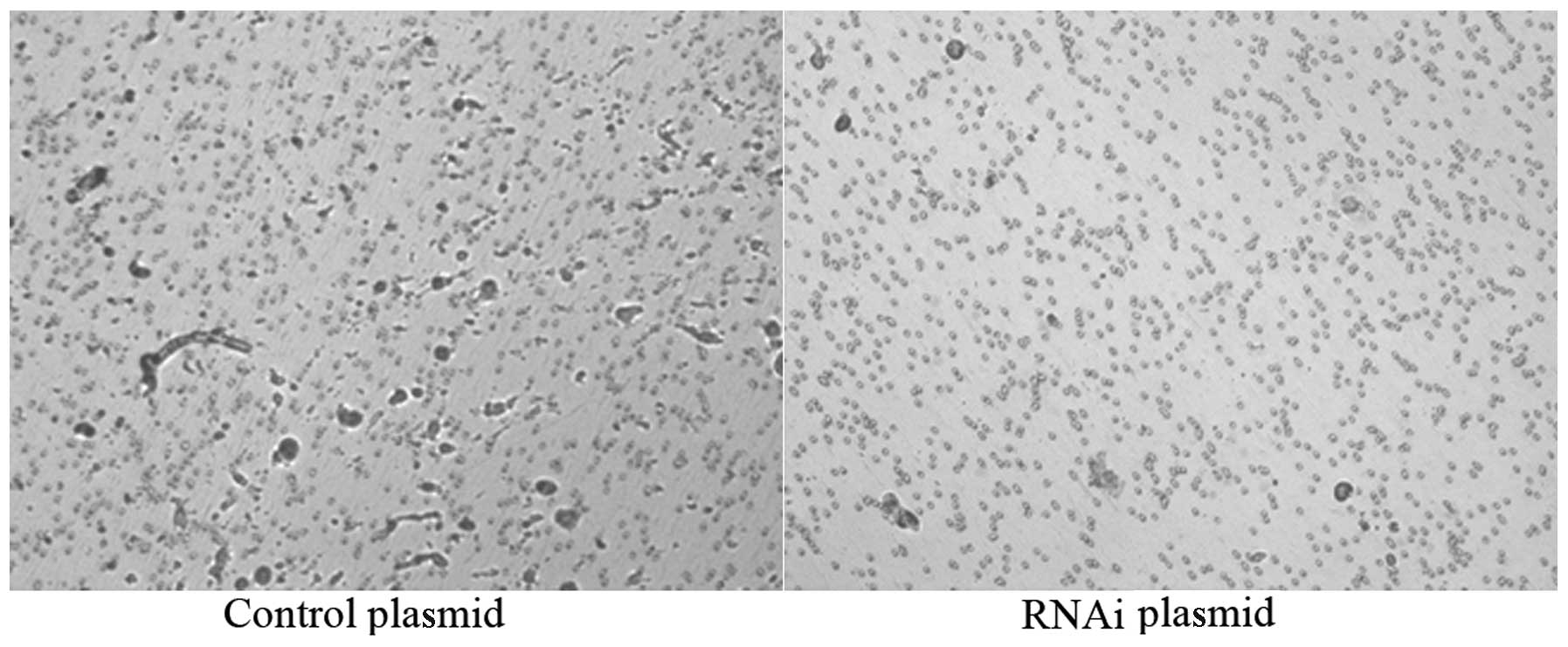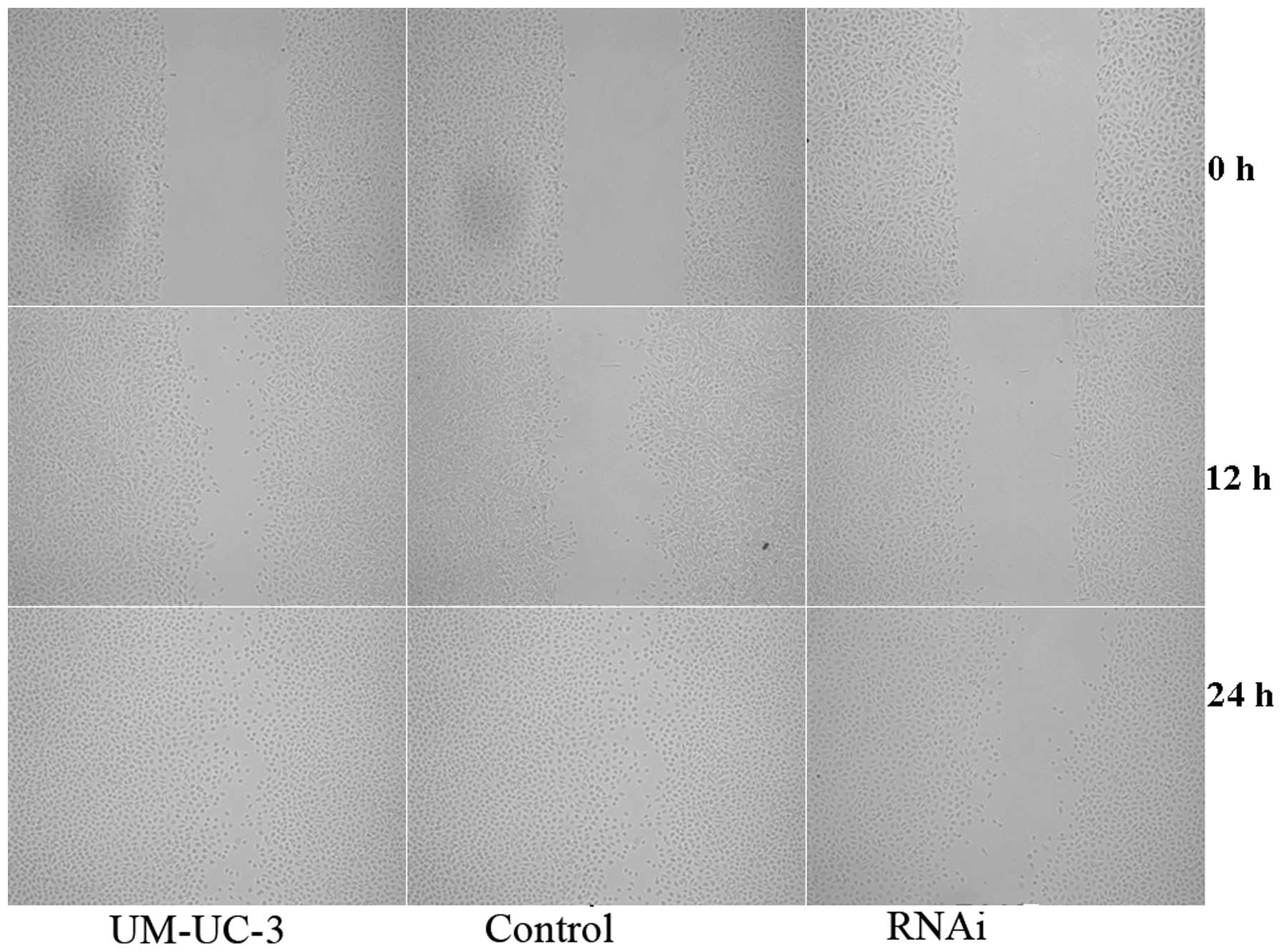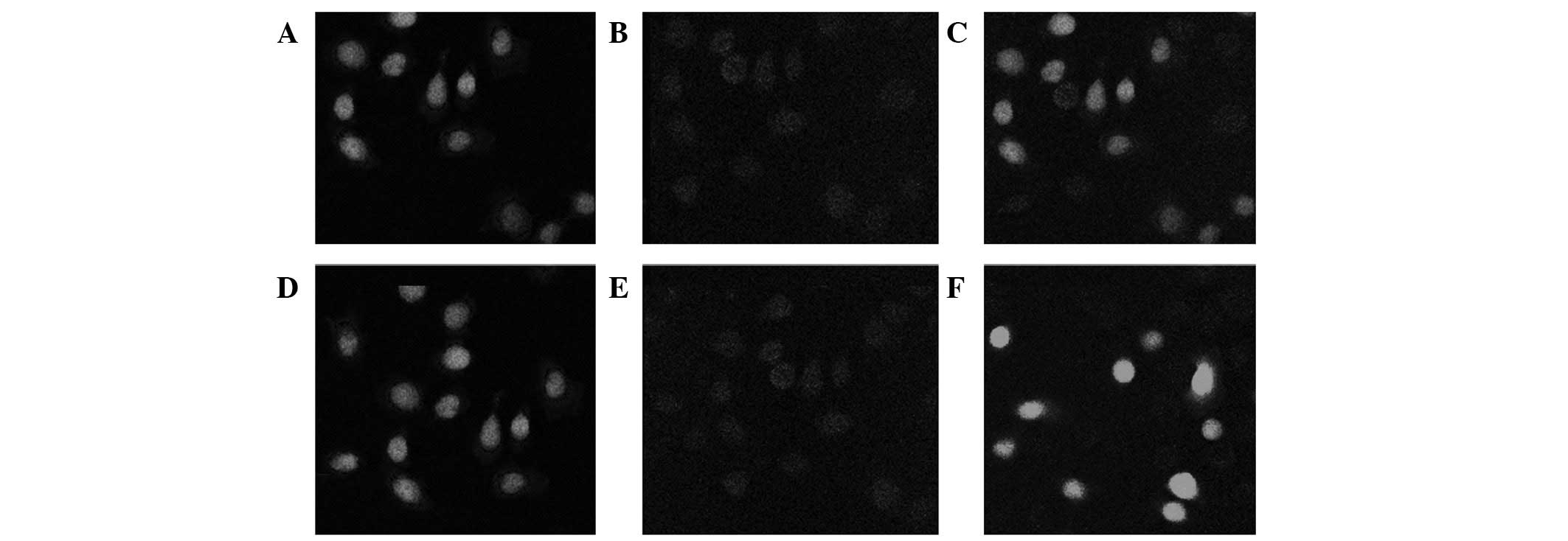|
1
|
Signoretti S, Waltregny D, Dilks J, et al:
p63 is a prostate basal cell marker and is required for prostate
development. Am J Pathol. 157:1769–1775. 2000. View Article : Google Scholar : PubMed/NCBI
|
|
2
|
Signoretti S, Pires MM, Lindauer M, et al:
p63 regulates commitment to the prostate cell lineage. Proc Natl
Acad Sci USA. 102:11355–11360. 2005. View Article : Google Scholar : PubMed/NCBI
|
|
3
|
Mills AA, Zheng B, Wang XJ, Vogel H, Roop
DR and Bradley A: p63 is a p53 homologue required for limb and
epidermal morphogenesis. Nature. 398:708–713. 1999. View Article : Google Scholar : PubMed/NCBI
|
|
4
|
Senoo M, Pinto F, Crum CP and McKeon F:
p63 is essential for the proliferative potential of stem cells in
stratified epithelia. Cell. 129:523–536. 2007. View Article : Google Scholar : PubMed/NCBI
|
|
5
|
Jacobs WB, Govoni G, Ho D, et al: p63 is
an essential proapoptotic protein during neural development.
Neuron. 48:743–756. 2005. View Article : Google Scholar : PubMed/NCBI
|
|
6
|
Moll UM and Slade N: p63 and p73: roles in
development and tumor formation. Mol Cancer Res. 2:371–386.
2004.PubMed/NCBI
|
|
7
|
Mills AA: p63: oncogene or tumor
suppressor? Curr Opin Genet Dev. 16:38–44. 2006. View Article : Google Scholar : PubMed/NCBI
|
|
8
|
Flores ER, Sengupta S, Miller JB, et al:
Tumor predisposition in mice mutant for p63 and p73: evidence for
broader tumor suppressor functions for the p53 family. Cancer Cell.
7:363–373. 2005. View Article : Google Scholar : PubMed/NCBI
|
|
9
|
Yamaguchi K, Wu L, Caballero OL, et al:
Frequent gain of the p40/p51/p63 gene locus in primary head and
neck squamous cell carcinoma. Int J Cancer. 86:684–689. 2000.
View Article : Google Scholar : PubMed/NCBI
|
|
10
|
Park BJ, Lee SJ, Kim JI, et al: Frequent
alteration of p63 expression in human primary bladder carcinomas.
Cancer Res. 60:3370–3374. 2000.PubMed/NCBI
|
|
11
|
Choi HR, Batsakis JG, Zhan F, Sturgis E,
Luna MA and El-Naggar AK: Differential expression of p53 gene
family members p63 and p73 in head and neck squamous tumorigenesis.
Hum Pathol. 33:158–164. 2002. View Article : Google Scholar : PubMed/NCBI
|
|
12
|
Dohn M, Zhang S and Chen X: p63alpha and
deltaNp63alpha can induce cell cycle arrest and apoptosis and
differentially regulate p53 target genes. Oncogene. 20:3193–3205.
2001. View Article : Google Scholar : PubMed/NCBI
|
|
13
|
Ihrie RA, Marques MR, Nguyen BT, et al:
Perp is a p63-regulated gene essential for epithelial integrity.
Cell. 120:843–856. 2005. View Article : Google Scholar : PubMed/NCBI
|
|
14
|
Numa F, Hirabayashi K, Kawasaki K, et al:
Syndecan-1 expression in cancer of the uterine cervix: association
with lymph node metastasis. Int J Oncol. 20:39–43. 2002.PubMed/NCBI
|
|
15
|
Sawada N, Murata M, Kikuchi K, et al:
Tight junctions and human diseases. Med Electron Microsc.
36:147–156. 2003. View Article : Google Scholar : PubMed/NCBI
|
|
16
|
Tobioka H, Isomura H, Kokai Y, Tokunaga Y,
Yamaguchi J and Sawada N: Occludin expression decreases with the
progression of human endometrial carcinoma. Hum Pathol. 35:159–164.
2004. View Article : Google Scholar : PubMed/NCBI
|
|
17
|
Morin PJ: Claudin proteins in human
cancer: promising new targets for diagnosis and therapy. Cancer
Res. 65:9603–9606. 2005. View Article : Google Scholar : PubMed/NCBI
|
|
18
|
Kaihara T, Kawamata H, Imura J, et al:
Redifferentiation and ZO-1 reexpression in liver-metastasized
colorectal cancer: possible association with epidermal growth
factor receptor-induced tyrosine phosphorylation of ZO-1. Cancer
Sci. 94:166–172. 2003. View Article : Google Scholar
|
|
19
|
Myal Y, Leygue E and Blanchard AA: Claudin
1 in breast tumorigenesis: revelation of a possible novel ‘claudin
high’ subset of breast cancers. J Biomed Biotechnol. 2010 May
13;(Epub ahead of print).
|
|
20
|
Tsukita S and Furuse M: Claudin-based
barrier in simple and stratified cellular sheets. Curr Opin Cell
Biol. 14:531–536. 2002. View Article : Google Scholar : PubMed/NCBI
|
|
21
|
Higashikawa K, Yoneda S, Tobiume K, et al:
Snail-induced down-regulation of DeltaNp63alpha acquires invasive
phenotype of human squamous cell carcinoma. Cancer Res.
67:9207–9213. 2007. View Article : Google Scholar
|
|
22
|
Barbieri CE, Tang LJ, Brown KA and
Pietenpol JA: Loss of p63 leads to increased cell migration and
up-regulation of genes involved in invasion and metastasis. Cancer
Res. 66:7589–7597. 2006. View Article : Google Scholar : PubMed/NCBI
|
|
23
|
Fukushima H, Koga F, Kawakami S, et al:
Loss of DeltaNp63alpha promotes invasion of urothelial carcinomas
via N-cadherin/Src homology and collagen/extracellular
signal-regulated kinase pathway. Cancer Res. 69:9263–9270. 2009.
View Article : Google Scholar : PubMed/NCBI
|
|
24
|
Kommagani R, Leonard MK, Lewis S, Romano
RA, Sinha S and Kadakia MP: Regulation of VDR by deltaNp63alpha is
associated with inhibition of cell invasion. J Cell Sci.
122:2828–2835. 2009. View Article : Google Scholar : PubMed/NCBI
|
|
25
|
Shimomura Y, Wajid M, Shapiro L and
Christiano AM: P-cadherin is a p63 target gene with a crucial role
in the developing human limb bud and hair follicle. Development.
135:743–753. 2008. View Article : Google Scholar : PubMed/NCBI
|
|
26
|
Lopardo T, Lo Iacono N, Marinari B, et al:
Claudin-1 is a p63 target gene with a crucial role in epithelial
development. PLoS One. 3:e27152008. View Article : Google Scholar : PubMed/NCBI
|
|
27
|
Carroll DK, Carroll JS, Leong CO, et al:
p63 regulates an adhesion programme and cell survival in epithelial
cells. Nat Cell Biol. 8:551–561. 2006. View
Article : Google Scholar : PubMed/NCBI
|
|
28
|
Koga F, Kawakami S, Fujii Y, et al:
Impaired p63 expression associates with poor prognosis and
uroplakin III expression in invasive urothelial carcinoma of the
bladder. Clin Cancer Res. 9:5501–5507. 2003.
|


















